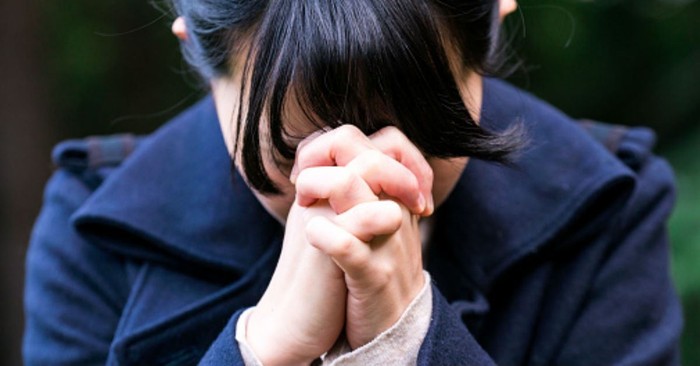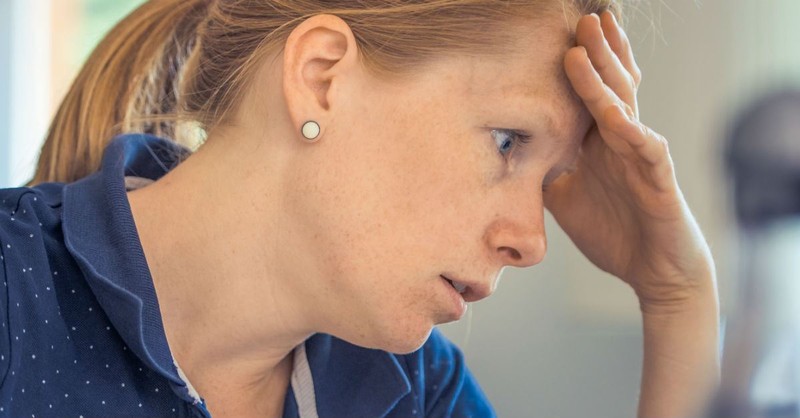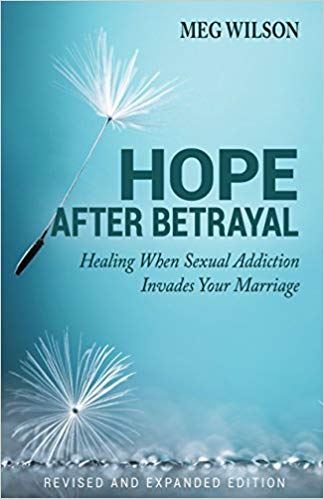
Waiting for direction isn’t easy. When the blackout of betrayal shrouded me, I sat there in the darkness, knowing I had to respond. But how? My initial reaction was strong, as it is for most women. It’s usually based in fear, stemming from varying degrees of pain and anger. We’re afraid of the unknown—what happens next. Doubts about making the right choices leave us confused. Unable to decide which way to go, we move around in a swirl of emotions.
At the moment of blackout, we’re angry at our spouses, at others involved, or at God. The anger then usually morphs into fear. That fear attaches itself to any number of preexisting issues like low self-esteem—“Is there something wrong with me?”—or lack of self-control—“How can I hurt him back?” All these emotions and issues can easily lead the betrayed spouse into rash actions that may cause even more damage to all parties concerned. The extent of ongoing damage seems to depend on our initial reaction, so the goal is to minimize the damage that occurs at the point of blackout.
Photo Credit: Thinkstock/AH86

1. Recognize and remove obstacles that can lead to further damage.
On more than one occasion, I’ve been in a pitch-black garage, caught there after the automatic garage-door light went off. So I know how important it is to move slowly, searching my way until I can orient myself—“There’s the lawnmower . . . next should be my daughter’s bike . . . ah . . . here are the stair-steps into the house”—or until my eyes adjust, or I find a source of light.
After Dave’s disclosure I was caught in a flurry of possible choices. I have to confess that, in the face of my pain, I was sorely tempted to give in to a knee-jerk reaction without giving any thought to the out¬comes. Our tendency is to look for quick solutions in all the wrong places—in our emotions, from our friends, in solutions that worked in the past—rather than wait for the best choice to be revealed through careful searching. It takes time for our eyes to adjust to the darkness. Trusting only in what we think we know can easily cause more bumps and bangs. When I get caught in a dark garage, I have to consider the possibility that someone may have left the lawnmower in front of the stair-steps. In a spiritual blackout, we need to identify, recognize, and remove obstacles that can lead to further damage.
Photo Credit: Pexels

2. Wait before acting.
Complete surrender to God’s direction is the only way we can thread our way along the dark path. But everything in us yells at us to gain control, to thrash around in the dark and find our own way out. That panic and thrashing is why it’s so important to wait before we act. We need to put an emotional space after the blackout but before the rash choice. Emotionally moving away from the pain enables us to look at the situation with some objectivity. All of the energy spent in our emotional thrashing about needs to be put instead into listening for God’s healing voice. Let Him lead the way even though you don’t know where it goes. Wait and see what only He can do.
So how did I know if it was God or me who was in control? The best way is to wait for the Word of God, the input of the people of God (mature believers), and the Spirit of God to line up. When the response I was thinking of was confirmed by the Bible, by others whom I trusted, and by a feeling of peace about the decision, then I could move forward in confidence.
Photo Credit: Unsplash/Luke Van Zyl

3. Be willing to let God reveal our own unhealthiness.
Another reason I needed to seek God’s guidance is based on the nature of addiction. Because I’d been living with an addict, certain patterns had been established in Dave’s and my relationship. God can use disclosure to be the catalyst for looking for, recognizing, and changing those patterns, and for ultimate healing. I needed to be willing to let God show me my own part in the unhealthiness. Although wives are in no way responsible for their husband’s addiction, we always have our own issues to address. My challenge was to determine what had kept me in the dark for so long.
Photo Credit: Pexels

“God listened patiently and then gently revealed to me more of the truth.”
At first, I wanted to focus on what my husband had done. That’s the safest and most common tendency for betrayed wives. Standing back on our perceived innocence and pointing a finger just feels so right. I spent a lot of time reminding God of all the ways I’d been a faithful and loving wife. God listened patiently and then gently revealed to me more of the truth.
I’d always known I was responsible for my reactions, responses, and relationship with Christ. I know that one day I’ll stand before the Lord and give an account. No one else will stand with me. I can’t blame my spouse for the choices I’ve made. Nor is anyone without sin, not one—not me. I knew this was true, but I wanted to apply a sliding scale to measure my “little” sins. So I asked God, “Why couldn’t I have married a little sinner like me?” I was stuck there for a while. How could God have let me marry this man? Why hadn’t his addiction come out years earlier? I was full of questions.
God listened.
Photo Credit: Thinkstock/Wenping Zheng

4. Remember how God sees sin.
Then He gently and lovingly showed me how things looked from His vantage point. Sin means “To miss the mark,” and it encompasses more than I might think. Not just the “biggies” like murder and adultery. A superior attitude, for example, is off the mark: “My sins are miniscule compared to my husband’s.” This belief prevented me from receiving all God wanted for me—such as becoming more Christlike—and hindered my healing process.
Another way I missed the mark was to lean on my own understanding, which is a vastly limited understanding. The right thing to do didn’t always make sense to my limited way of thinking. The whole truth was that every time I decided not to follow Christ, I was disobedient—I was in sin.
Photo Credit: Thinkstock/DMEPhotography

5. Every sin has the same price tag.
God showed me that all sin separates me from Him and every sin has the same, inestimable price tag—the blood of His Son. Though my sin may not have the same consequences as other sins, it is just as costly to God. My responsibility begins and ends solely with my choices in the presence of the Almighty.
 Meg Wilson is the author of Hope After Betrayal and a regular speaker to women’s groups, Bible studies, and conferences. Eighteen years ago she began leading Healing Heart groups, then in 2013 she founded the Hope After Betrayal Ministries to bring help and hope to women whose husbands are caught in the web of sexual addiction. Her mission is to help women find hope and healing from the pain of their partner’s sexual betrayal. In addition, she hopes to increase awareness in the church of how to minister to the brokenhearted. Wilson and her husband, Dave, have been married for more than 35 years and have two adult daughters. The Wilsons make their home in Vancouver, Washington. Learn more about Meg Wilson at hopeafterbetrayal.com. You can also find her on Facebook (@habministries)and Twitter (@HopeAfterBetray).
Meg Wilson is the author of Hope After Betrayal and a regular speaker to women’s groups, Bible studies, and conferences. Eighteen years ago she began leading Healing Heart groups, then in 2013 she founded the Hope After Betrayal Ministries to bring help and hope to women whose husbands are caught in the web of sexual addiction. Her mission is to help women find hope and healing from the pain of their partner’s sexual betrayal. In addition, she hopes to increase awareness in the church of how to minister to the brokenhearted. Wilson and her husband, Dave, have been married for more than 35 years and have two adult daughters. The Wilsons make their home in Vancouver, Washington. Learn more about Meg Wilson at hopeafterbetrayal.com. You can also find her on Facebook (@habministries)and Twitter (@HopeAfterBetray).
Photo Credit: Unsplash
Originally published Tuesday, 23 October 2018.







